Tag Archives: john bullard
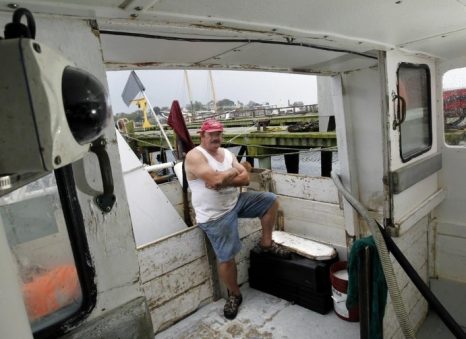
Mass delegation supports putting Carlos Rafael’s forfeiture toward electronic monitoring
John Bullard wants to arm fishing vessels with a smartphone — figuratively speaking. “Nobody has rotary phones anymore, we just assume smartphones are the way we communicate and all the benefits of smartphones we’ve come to expect as normal,” Bullard said. ”(Electronic monitoring) is what we’re going to transition to, but it’s going to take time.” NOAA’s Northeast Regional director said he believes current methods can lead to inaccurate science. Last week, NOAA conducted a fishing stock assessment meeting in New Bedford where similar concerns of bad science emerged. The root of the concern was data from false reports. Electronic monitoring, specifically cameras on vessels, would provide accurate information. click here to read the story 21:39
Trump administration steps in on fishing limits, and the implications could ripple
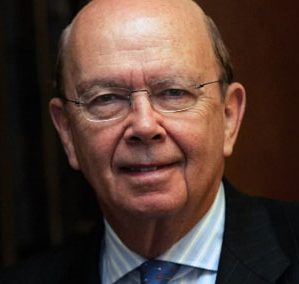 “The commission is deeply concerned about the near-term impact on our ability to end overfishing on the summer flounder stock as well as the longer-term ability for the commission to effectively conserve numerous other Atlantic coastal shared resources,” Douglas Grout, the commission’s chair, said in a statement. “New Jersey makes a compelling argument that the measures it implemented this year, despite increasing catch above the harvest target, will likely reduce total summer flounder mortality in New Jersey waters to a level consistent with the overall conservation objective,” Chris Oliver, assistant administrator of fisheries at NOAA, wrote the commission in a letter on behalf of Ross. The move infuriated commissioners and fishing officials throughout the area, as well as the region’s NOAA officials. “Ross was brilliant in his decision,” said Jim Donofrio, executive director of the Recreational Fishing Alliance in New Jersey, which represents thousands of recreational fishermen across the country. “The Trump administration has challenged a broken fishery management system in this country, and I applaud them for doing it.” click here to read the story 10:10
“The commission is deeply concerned about the near-term impact on our ability to end overfishing on the summer flounder stock as well as the longer-term ability for the commission to effectively conserve numerous other Atlantic coastal shared resources,” Douglas Grout, the commission’s chair, said in a statement. “New Jersey makes a compelling argument that the measures it implemented this year, despite increasing catch above the harvest target, will likely reduce total summer flounder mortality in New Jersey waters to a level consistent with the overall conservation objective,” Chris Oliver, assistant administrator of fisheries at NOAA, wrote the commission in a letter on behalf of Ross. The move infuriated commissioners and fishing officials throughout the area, as well as the region’s NOAA officials. “Ross was brilliant in his decision,” said Jim Donofrio, executive director of the Recreational Fishing Alliance in New Jersey, which represents thousands of recreational fishermen across the country. “The Trump administration has challenged a broken fishery management system in this country, and I applaud them for doing it.” click here to read the story 10:10
A Message from John Bullard – Looking Forward to Looking Back: Electronic Monitoring in New England Groundfish
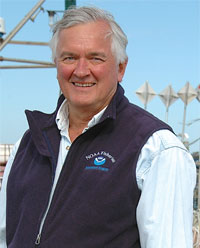 Electronic monitoring (EM) is being used for catch monitoring and reporting compliance in fisheries worldwide, but use in the Northeast has been somewhat limited. There are always challenges with ensuring the accuracy of self-reported fisheries catch data, but EM represents a new suite of tools to improve reporting accuracy and increase catch monitoring. If we want to provide scientists with the best information possible and manage our fisheries sustainably, then we need to consider all of the tools in the toolbox. click here to read the story 07:27 (The tool box is full of monkey wrenches and ball peen hammers)
Electronic monitoring (EM) is being used for catch monitoring and reporting compliance in fisheries worldwide, but use in the Northeast has been somewhat limited. There are always challenges with ensuring the accuracy of self-reported fisheries catch data, but EM represents a new suite of tools to improve reporting accuracy and increase catch monitoring. If we want to provide scientists with the best information possible and manage our fisheries sustainably, then we need to consider all of the tools in the toolbox. click here to read the story 07:27 (The tool box is full of monkey wrenches and ball peen hammers)
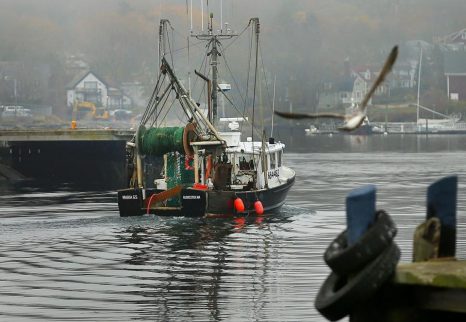
A milestone in the war over the true state of cod
For years, fishermen from Gloucester to New Bedford have accused the federal government of relying on faulty science to assess the health of the region’s cod population, a fundamental flaw that has greatly exaggerated its demise, they say, and led officials to wrongly ban nearly all fishing of the iconic species.The fishermen’s concerns resonated with Governor Charlie Baker, so last year he commissioned his own survey of the waters off New England, where cod were once so abundant that fishermen would say they could walk across the Atlantic on their backs. Now, in a milestone in the war over the true state of cod in the Gulf of Maine, Massachusetts scientists have reached the same dismal conclusion that their federal counterparts did: The region’s cod are at a historic low — about 80 percent less than the population from just a decade ago. continue reading the story here 08:07
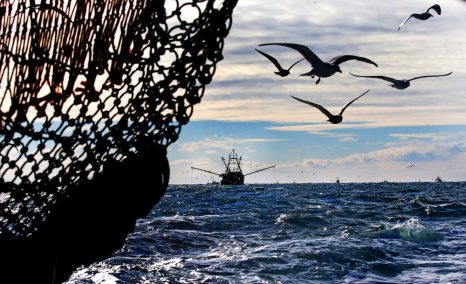
Federal regulators put an end to turbulent season in northern Gulf of Maine scallop fishery
Federal authorities are closing the scallop fishery in the northern Gulf of Maine at 12:01 a.m. Thursday after a contentious three-week season that pitted the interests of part-time, small-boat fishermen from Maine against large, full-time scallop operators. Fisheries regulators announced the closure Wednesday after small-boat fishermen – many of them Maine lobstermen operating 40- to 45-foot boats – met their annual quota of 70,000 pounds. The developments do not apply to the scallop fishery in state waters, which extend to 3 miles from shore. This year’s federal harvest has been contentious because the large, full-time boats are believed to have caught more than 1 million pounds of scallops in the northern Gulf of Maine scallop fishing area, but owing to a quirk in federal rules the fishery could not be closed until the small vessels caught 70,000 pounds. This month’s storms and unseasonable weather had kept the small boats in port, delaying their ability to meet their annual quota and close the area to the larger vessels, who were permitted to continue harvesting large quantities of scallops under federal rules. continue reading the story here 07:57
East Coast fishermen file appeal over cost of government-required ‘at-sea monitors’
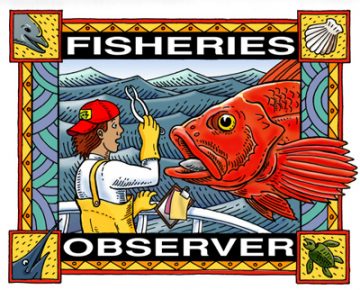 The National Oceanic and Atmospheric Administration, NOAA, requires groundfishermen — those who catch cod, haddock and other common bottom-dwelling species — to carry on board “at-sea monitors.” The observers, hired by three for-profit companies, are third-party workers whose task it is to observe fishermen’s compliance with federal regulations and ensure annual quotas are not exceeded. The dispute lies in the cost of the monitors and who should pay for them: Fishermen are billed on average $700 a day when a regulator is present. NOAA, meanwhile, says monitors were placed on fishing boats like Goethel’s only 14 percent of the time in 2016 — and claims the fishing industry supported this system of regulation in 2010 when a vote went before the New England Fishery Management Council, an advisory board to NOAA that sets the rules. “At sea monitors were originally supported by the sectors when we went from a days-at-sea form of management to a quota based form of management in 2010,” said John Bullard, the regional administrator for NOAA’s Greater Atlantic Regional Fisheries Office. Read the story here 14:22
The National Oceanic and Atmospheric Administration, NOAA, requires groundfishermen — those who catch cod, haddock and other common bottom-dwelling species — to carry on board “at-sea monitors.” The observers, hired by three for-profit companies, are third-party workers whose task it is to observe fishermen’s compliance with federal regulations and ensure annual quotas are not exceeded. The dispute lies in the cost of the monitors and who should pay for them: Fishermen are billed on average $700 a day when a regulator is present. NOAA, meanwhile, says monitors were placed on fishing boats like Goethel’s only 14 percent of the time in 2016 — and claims the fishing industry supported this system of regulation in 2010 when a vote went before the New England Fishery Management Council, an advisory board to NOAA that sets the rules. “At sea monitors were originally supported by the sectors when we went from a days-at-sea form of management to a quota based form of management in 2010,” said John Bullard, the regional administrator for NOAA’s Greater Atlantic Regional Fisheries Office. Read the story here 14:22
Effort to protect deep-sea coral has lobster industry on alert
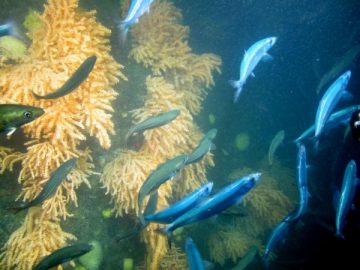 Over 400 Maine lobstermen could lose their traditional fishing territory under a proposal to protect deep-sea corals in the Gulf of Maine. The New England Fishery Management Council is considering a plan that would ban fishing in four designated coral zones spanning about 161 miles of federal waters in the Gulf of Maine – Mount Desert Rock, Outer Schoodic Ridge, Jordan Basin and Lindenkohl Knoll. Here, often on steep rock walls deep under water where sunlight cannot penetrate, scientists have found dense, delicate and slow-growing coral gardens of sea whips, fans and pens. During the cold-weather months, when 52-year-old Jim Dow usually fishes for hard-shell lobsters in deep federal waters, his buoys will encircle Mount Desert Rock, where the lobster is so plentiful that boats will sail for hours to drop traps there. As a result, fishermen call it the Meeting Grounds. He said word is just starting to spread about the coral protection plan, but he said the fishermen he has talked with say they didn’t even know there was coral in the deep canyons below. Read the rest here 10:16
Over 400 Maine lobstermen could lose their traditional fishing territory under a proposal to protect deep-sea corals in the Gulf of Maine. The New England Fishery Management Council is considering a plan that would ban fishing in four designated coral zones spanning about 161 miles of federal waters in the Gulf of Maine – Mount Desert Rock, Outer Schoodic Ridge, Jordan Basin and Lindenkohl Knoll. Here, often on steep rock walls deep under water where sunlight cannot penetrate, scientists have found dense, delicate and slow-growing coral gardens of sea whips, fans and pens. During the cold-weather months, when 52-year-old Jim Dow usually fishes for hard-shell lobsters in deep federal waters, his buoys will encircle Mount Desert Rock, where the lobster is so plentiful that boats will sail for hours to drop traps there. As a result, fishermen call it the Meeting Grounds. He said word is just starting to spread about the coral protection plan, but he said the fishermen he has talked with say they didn’t even know there was coral in the deep canyons below. Read the rest here 10:16
Another Fishery, Another Threat – LI commercial bluefish season faces unprecedented mid season closure
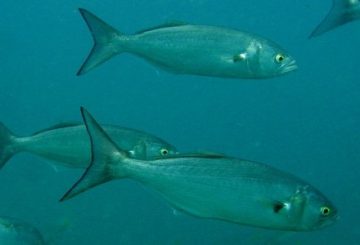 Locally caught bluefish fillets may soon be scarce at Long Island fish stores if actions by the federal government force a closure of the New York commercial fishery in coming days. In a letter to the regional director of the National Oceanic and Atmospheric Administration Tuesday, the commissioner of the state Department of Environmental Conservation said newly implemented restrictions on commercial bluefish harvesting would have “devastating” impacts. “I urge you to reconsider the management strategy for Atlantic bluefish,” BDEC Commissioner Basil Seggos wrote to NOAA regional director . “The elimination in mid season of quota from the commercial fishery in 2016 is shocking and would deal a devastating blow to our commercial fisheries.” Read the rest here 16:10
Locally caught bluefish fillets may soon be scarce at Long Island fish stores if actions by the federal government force a closure of the New York commercial fishery in coming days. In a letter to the regional director of the National Oceanic and Atmospheric Administration Tuesday, the commissioner of the state Department of Environmental Conservation said newly implemented restrictions on commercial bluefish harvesting would have “devastating” impacts. “I urge you to reconsider the management strategy for Atlantic bluefish,” BDEC Commissioner Basil Seggos wrote to NOAA regional director . “The elimination in mid season of quota from the commercial fishery in 2016 is shocking and would deal a devastating blow to our commercial fisheries.” Read the rest here 16:10
Letter: Fishermen part of S-K grant process – NMFS Regional administrator John Bullard
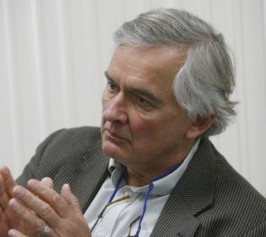 I need to respond to Mr. Parisi’s June 28 letter (click here) expressing concern that academics receive the majority Saltonstall-Kennedy (SK) Grant Program funding, leaving a limited amount for local fishermen. First, I would like to point out that competition for limited 2016 Saltonstall-Kennedy funds was stiff. Requests for SK funds always far exceed the resources available, and 2016 was no different. In 2016, $11 million was available for SK grants, but requests for funding exceeded $75 million. Of the 50 projects selected nationally, 22 projects were from our Greater Atlantic Region, totaling $4.6 million. While it is true that few fishermen submit applications by themselves to this highly competitive program, this does not mean that they and other fishing industry representatives are not involved. In fact, it is quite the opposite. Frequently they are partners in grant applications. Read the rest here 20:21
I need to respond to Mr. Parisi’s June 28 letter (click here) expressing concern that academics receive the majority Saltonstall-Kennedy (SK) Grant Program funding, leaving a limited amount for local fishermen. First, I would like to point out that competition for limited 2016 Saltonstall-Kennedy funds was stiff. Requests for SK funds always far exceed the resources available, and 2016 was no different. In 2016, $11 million was available for SK grants, but requests for funding exceeded $75 million. Of the 50 projects selected nationally, 22 projects were from our Greater Atlantic Region, totaling $4.6 million. While it is true that few fishermen submit applications by themselves to this highly competitive program, this does not mean that they and other fishing industry representatives are not involved. In fact, it is quite the opposite. Frequently they are partners in grant applications. Read the rest here 20:21
Getting CHOKED! Cod quota cuts, boats not fishing could interrupt New Bedford fish auction trading
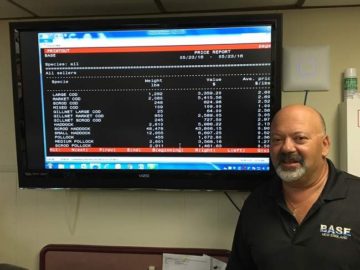 The fish auction that’s been a daily institution on the city’s waterfront for decades could see periodic closures over the next month or so, as a co-owner said Monday that this year’s significant cut to the cod quota is keeping many boats tied to the docks, rather than bringing in fish. Richard Canastra, co-owner of the Whaling City Seafood Display Auction since 1994, said Monday morning that in his view, “there won’t be” fish auctions on some days between now and July 4, when he expects commercial fishing activity to pick up again. “There’s not many fishermen fishing anymore,” Canastra said as he stood outside the auction building on Hassey Street. “A lot of the boats are just tied up — they’re not going to fish. Why would they fish if there’s only so much (allowable) cod?” Former New Bedford Mayor John Bullard, now regional administrator for NOAA fisheries, has said the new regulations create “about a 95 percent cut” since 2012 in catch limits for Georges Bank cod, a key species for New Bedford’s fishing industry. Read the rest here 06:43
The fish auction that’s been a daily institution on the city’s waterfront for decades could see periodic closures over the next month or so, as a co-owner said Monday that this year’s significant cut to the cod quota is keeping many boats tied to the docks, rather than bringing in fish. Richard Canastra, co-owner of the Whaling City Seafood Display Auction since 1994, said Monday morning that in his view, “there won’t be” fish auctions on some days between now and July 4, when he expects commercial fishing activity to pick up again. “There’s not many fishermen fishing anymore,” Canastra said as he stood outside the auction building on Hassey Street. “A lot of the boats are just tied up — they’re not going to fish. Why would they fish if there’s only so much (allowable) cod?” Former New Bedford Mayor John Bullard, now regional administrator for NOAA fisheries, has said the new regulations create “about a 95 percent cut” since 2012 in catch limits for Georges Bank cod, a key species for New Bedford’s fishing industry. Read the rest here 06:43
Bill Karp, Director of Northeast Fisheries Science Center is retiring
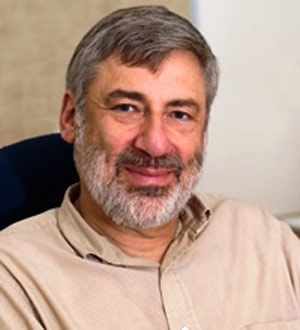 The head of NOAA Fisheries’ Northeast Fisheries Science Center in Woods Hole has announced his retirement in September from federal service after just under four years as head of the center. Bill Karp came to Cape Cod after serving many years in the Alaska Fisheries Science Center, and has 30 years of fisheries research experience. The science centers conduct most of the fisheries research regulators then use to set policies and quotas, and is often in the middle of sharp disagreements between researchers and the commercial fishing industry. Karp is a regular presence at the marathon New England Fisheries Management Council’s meetings. Karp wrote in a retirement announcement that he was honored to have been selected for the position on the Cape and enjoyed working with dedicated and accomplished staff. Read the rest here 19:29
The head of NOAA Fisheries’ Northeast Fisheries Science Center in Woods Hole has announced his retirement in September from federal service after just under four years as head of the center. Bill Karp came to Cape Cod after serving many years in the Alaska Fisheries Science Center, and has 30 years of fisheries research experience. The science centers conduct most of the fisheries research regulators then use to set policies and quotas, and is often in the middle of sharp disagreements between researchers and the commercial fishing industry. Karp is a regular presence at the marathon New England Fisheries Management Council’s meetings. Karp wrote in a retirement announcement that he was honored to have been selected for the position on the Cape and enjoyed working with dedicated and accomplished staff. Read the rest here 19:29
Monitoring The Catch Aboard Groundfishing Vessels
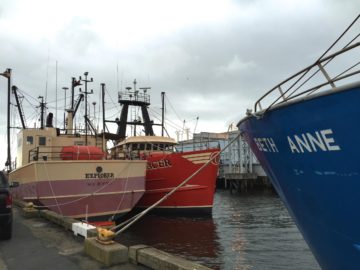 Regulations are stiff in the commercial fishing industry – and especially so for those who go after groundfish like cod and haddock. Now, one of the industry’s biggest players is accused of skirting those regulations for years – allegedly cooking the books and reaping big profits on illegally caught groundfish. As Brian Morris reports, that’s having a ripple effect on small, single-boat groundfishermen who play by the rules. Around the docks of New Bedford, people know Carlos Rafael as the “Codfather,” a legendary, self-made figure who dominates the city’s biggest industry. He manages a fleet of some 40 vessels, and also operates a fish distribution operation. Authorities raided his business in February, and federal officials allege he was changing documents – falsifying the types of fish he reported catching. Audio, Read the rest here 14:26
Regulations are stiff in the commercial fishing industry – and especially so for those who go after groundfish like cod and haddock. Now, one of the industry’s biggest players is accused of skirting those regulations for years – allegedly cooking the books and reaping big profits on illegally caught groundfish. As Brian Morris reports, that’s having a ripple effect on small, single-boat groundfishermen who play by the rules. Around the docks of New Bedford, people know Carlos Rafael as the “Codfather,” a legendary, self-made figure who dominates the city’s biggest industry. He manages a fleet of some 40 vessels, and also operates a fish distribution operation. Authorities raided his business in February, and federal officials allege he was changing documents – falsifying the types of fish he reported catching. Audio, Read the rest here 14:26
Thursday: Challenges facing New England’s commercial fishing industry topic of public forum at RI College
A panel of government regulators, scientists, environmental advocates and fishermen will try to answer questions about the future of one of New England’s most iconic and important industries at a forum this Thursday. The event, which is free and open to the public, runs from 6 to 8 p.m. at Sapinsley Hall in the Nazarian Center for the Performing Arts at Rhode Island College. The panel will include: John Bullard, regional administrator with NOAA’s Northeast Regional Office; Graham Forrester, professor in the Department of Natural Resources Science at the University of Rhode Island; Erica Fuller, senior associate attorney with Earth Justice; Matt Tinning, senior director, U.S. Oceans Program, Environmental Defense Fund; David Goethel, captain and owner of the Ellen Diane; Mark Phillips, captain and owner of FV Illusion; and Daniel Georgianna, Chancellor professor of economics at the University of Massachusetts Dartmouth. Read the rest here 12:40
Contentious – Fishermen look to replace human monitors with cameras
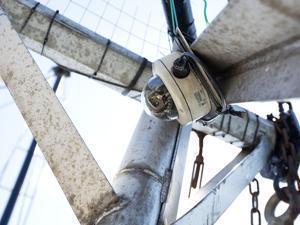 The relationship between the region’s fishermen and the government observers who monitor their catch has long been uneasy, and that tension has only intensified since federal officials in March began requiring fishermen to pay hundreds of dollars every time an observer accompanies them to sea. But in the coming weeks, fishermen and federal regulators are poised to launch an experimental new program that could go a long way toward ending the conflict, while also potentially curbing costs and allowing broader oversight. With the help of private grants and the government’s blessing, fishermen from Cape Cod to Maine will rig their boats with an expensive suite of cameras, computers, and sensors to monitor their catch, replacing the on-board observers. Read the article, Click here 08:09
The relationship between the region’s fishermen and the government observers who monitor their catch has long been uneasy, and that tension has only intensified since federal officials in March began requiring fishermen to pay hundreds of dollars every time an observer accompanies them to sea. But in the coming weeks, fishermen and federal regulators are poised to launch an experimental new program that could go a long way toward ending the conflict, while also potentially curbing costs and allowing broader oversight. With the help of private grants and the government’s blessing, fishermen from Cape Cod to Maine will rig their boats with an expensive suite of cameras, computers, and sensors to monitor their catch, replacing the on-board observers. Read the article, Click here 08:09
New England Fishermen face devastating cod cuts
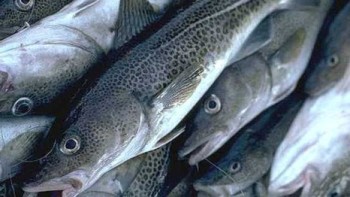 New Bedford’s commercial fishing industry — battered by last month’s arrest of magnate Carlos Rafael on federal conspiracy charges, last week’s drug raids on the waterfront and ongoing monitoring costs — took another punch to the gut this week, as government regulators proposed new cuts to cod catches that could take effect May 1. “Those cuts will be devastating to the groundfishing fleet of New Bedford, and the whole New England coast,” said John Haran, manager of groundfish Sector 13. The National Oceanic and Atmospheric Administration (NOAA), in conjunction with the New England Fishery Management Council, released a proposed update Monday to the federal management plan for the northeastern fishery. Read the rest here 20:45
New Bedford’s commercial fishing industry — battered by last month’s arrest of magnate Carlos Rafael on federal conspiracy charges, last week’s drug raids on the waterfront and ongoing monitoring costs — took another punch to the gut this week, as government regulators proposed new cuts to cod catches that could take effect May 1. “Those cuts will be devastating to the groundfishing fleet of New Bedford, and the whole New England coast,” said John Haran, manager of groundfish Sector 13. The National Oceanic and Atmospheric Administration (NOAA), in conjunction with the New England Fishery Management Council, released a proposed update Monday to the federal management plan for the northeastern fishery. Read the rest here 20:45
Fishing industry fighting cost of at-sea monitors
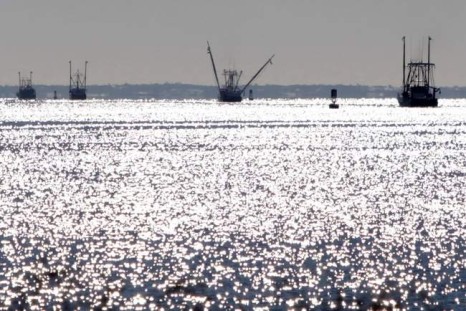 Fishermen are opposing new catch-monitoring costs that could take effect March 1, as a judge’s ruling this week gave the industry a setback in efforts to block the transition from government funding. John Haran of Dartmouth, manager of a local fishery sector, said in December that transferring the regulatory costs to the fishing industry could put more than 40 local groundfishing boats out of business. Local fishing industry tycoon Carlos Rafael said the costs — potentially about $700 per monitored trip — could mean repeated expenses of $14,000 across 20 groundfishing boats in his fleet. Read the article here 07:50
Fishermen are opposing new catch-monitoring costs that could take effect March 1, as a judge’s ruling this week gave the industry a setback in efforts to block the transition from government funding. John Haran of Dartmouth, manager of a local fishery sector, said in December that transferring the regulatory costs to the fishing industry could put more than 40 local groundfishing boats out of business. Local fishing industry tycoon Carlos Rafael said the costs — potentially about $700 per monitored trip — could mean repeated expenses of $14,000 across 20 groundfishing boats in his fleet. Read the article here 07:50
Questions schooling around at-sea fishing monitors – NOAA says money to run out in February
 The battle over the cost and scope of at-sea monitoring of Northeast groundfish vessels, now being played out on various regulatory and legal platforms, promises a hectic end to the current fishing season and a complex start to the next. There are no shortage of questions. When will the federal government run out of money and shift the responsibility for paying for observers to the permit holders? And what of the Goethel lawsuit filed with the support of Cause for Action, the nonprofit government watchdog agency? Read the article here. 08:10
The battle over the cost and scope of at-sea monitoring of Northeast groundfish vessels, now being played out on various regulatory and legal platforms, promises a hectic end to the current fishing season and a complex start to the next. There are no shortage of questions. When will the federal government run out of money and shift the responsibility for paying for observers to the permit holders? And what of the Goethel lawsuit filed with the support of Cause for Action, the nonprofit government watchdog agency? Read the article here. 08:10
Top fisheries regulator blends into the crowd at Working Waterfront Festival
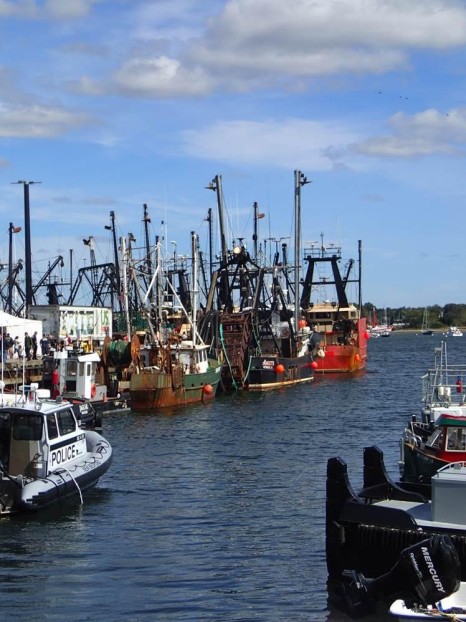 In the closing hours of a picture-perfect day for the New Bedford Waterfront Festival, about 15 pretty important people were meeting in a stuffy, windowless third-floor conference room up three flights of stairs at the State Pier building. NOAA Assistant Administrator for Fisheries Eileen Sobeck. She was here at the invitation of Mayor Mitchell, and the arrangements were done pretty quietly. Former Mayor John Bullard was there because, as he is now regional administrator for NOAA Fisheries in the Northeast, Sobek is his boss. He deferred all questions to her. Read the rest here 07:16
In the closing hours of a picture-perfect day for the New Bedford Waterfront Festival, about 15 pretty important people were meeting in a stuffy, windowless third-floor conference room up three flights of stairs at the State Pier building. NOAA Assistant Administrator for Fisheries Eileen Sobeck. She was here at the invitation of Mayor Mitchell, and the arrangements were done pretty quietly. Former Mayor John Bullard was there because, as he is now regional administrator for NOAA Fisheries in the Northeast, Sobek is his boss. He deferred all questions to her. Read the rest here 07:16
Groundfish industry taking another hit with addition of at-sea monitors – Steve Urbon
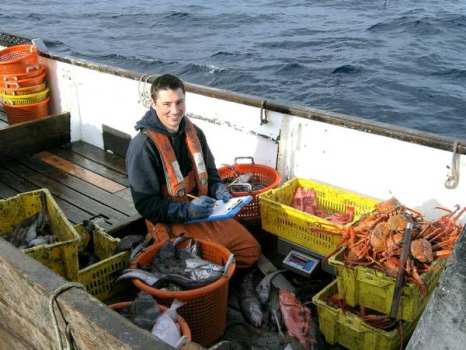 So this is how it looks. The gradual collapse of the New England groundfish industry continued last week as about two dozen people jammed into a meeting room of the state’s Division of Marine Fisheries office in the former voc-tech school on Purchase Street to argue about the distribution of disaster relief money allocated by Congress. Adding insult to injury is the impending shift of costs for at-sea monitors to the fishing boats. Fishing industry advocates liken this to a shotgun wedding, in which the boats have no choice but to sign a contract with a third party with no say in the price being paid. Read the rest here 09:09
So this is how it looks. The gradual collapse of the New England groundfish industry continued last week as about two dozen people jammed into a meeting room of the state’s Division of Marine Fisheries office in the former voc-tech school on Purchase Street to argue about the distribution of disaster relief money allocated by Congress. Adding insult to injury is the impending shift of costs for at-sea monitors to the fishing boats. Fishing industry advocates liken this to a shotgun wedding, in which the boats have no choice but to sign a contract with a third party with no say in the price being paid. Read the rest here 09:09
NESC AGAIN is Questioned, Criticized as Mid Atlantic Council Cuts Fluke by more than 26 percent
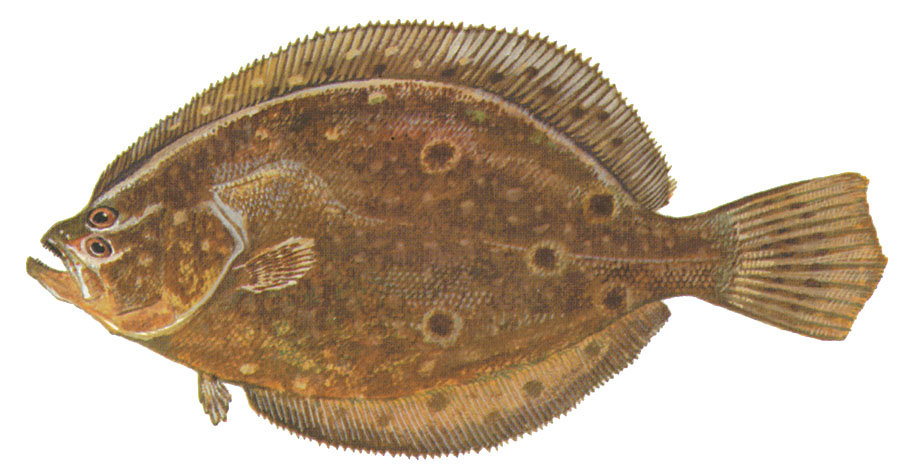 It could have been worse. The initial proposal announced in July called for a 43 percent reduction. A lot of theories were thrown around at the meeting, ranging from illegal harvests to dogfish shark predation.Some wanted the panels’ science and statistical committees to take another look, which was part of the motions by Fote and Kaelin. Greg DiDomenico, director of the Cape May-based Garden State Seafood Association, said more than one-third of the time, new stock assessments show the older ones were wrong. Read the rest here 19:42
It could have been worse. The initial proposal announced in July called for a 43 percent reduction. A lot of theories were thrown around at the meeting, ranging from illegal harvests to dogfish shark predation.Some wanted the panels’ science and statistical committees to take another look, which was part of the motions by Fote and Kaelin. Greg DiDomenico, director of the Cape May-based Garden State Seafood Association, said more than one-third of the time, new stock assessments show the older ones were wrong. Read the rest here 19:42
Disaster aid belongs to the fishing industry – It’s no wonder the industry views NOAA with suspicion
NOAA has in recent weeks been casting about for a pool of money to tap for its controversial onboard fishing  . Efforts to make fishermen pay directly for the program — yet another unfunded federal mandate — have so far fallen short.,,, states sill have about $10 million in the ‘third bin,’” John Bullard said. “(Monitoring) would be an eligible use of those funds.” Let us not forget one reason NOAA wants to expand its lobster monitoring program is because it has to spend the money it has budgeted for that plan. Read the rest here 13:25
. Efforts to make fishermen pay directly for the program — yet another unfunded federal mandate — have so far fallen short.,,, states sill have about $10 million in the ‘third bin,’” John Bullard said. “(Monitoring) would be an eligible use of those funds.” Let us not forget one reason NOAA wants to expand its lobster monitoring program is because it has to spend the money it has budgeted for that plan. Read the rest here 13:25
Fate of the blueline tilefishery is now in the hands of the National Marine Fisheries Service
 The species grabbed anglers’ attention in February when the Mid-Atlantic Fishery Management Council requested that NMFS take emergency action on bluelines when it learned commercial fishing boats out of North Carolina planned on landing tilefish in New Jersey to take advantage of a no-limit loophole. A week after the Mid-Atlantic made its request, The SAFMC directed its Science and Statistical Committee (SSC) to determine if its earlier assessment, SEDAR 32, was applicable to the entire Atlantic Coast. Read the rest here 13:11
The species grabbed anglers’ attention in February when the Mid-Atlantic Fishery Management Council requested that NMFS take emergency action on bluelines when it learned commercial fishing boats out of North Carolina planned on landing tilefish in New Jersey to take advantage of a no-limit loophole. A week after the Mid-Atlantic made its request, The SAFMC directed its Science and Statistical Committee (SSC) to determine if its earlier assessment, SEDAR 32, was applicable to the entire Atlantic Coast. Read the rest here 13:11
An open letter to NOAA, Sam Frontiero, Gloucester
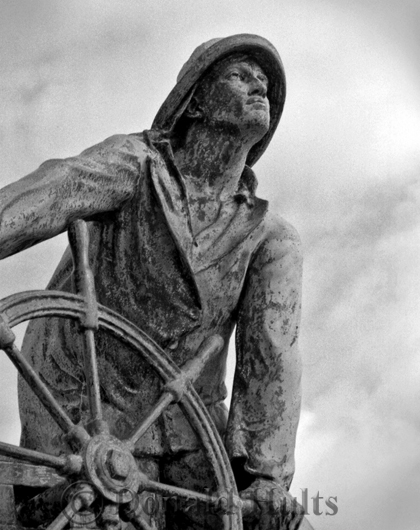 Well, John Bullard, you have put the final nail in the fisherman’s coffin and you must be proud. You have taken away the livelihood of the fisherman and the thousands of related jobs to the industry. You must be proud. You have hurt our young people’s chances for an education with your junk science, people paying their mortgages and so much more. You must be proud. I’ve always said along with power comes corruption and NOAA has shown that now and in the past. Read the rest here 10:30
Well, John Bullard, you have put the final nail in the fisherman’s coffin and you must be proud. You have taken away the livelihood of the fisherman and the thousands of related jobs to the industry. You must be proud. You have hurt our young people’s chances for an education with your junk science, people paying their mortgages and so much more. You must be proud. I’ve always said along with power comes corruption and NOAA has shown that now and in the past. Read the rest here 10:30
NOAA and Mr.Bullard have too much power over our industry – Sam Parisi, Gloucester
 As a former fisherman from Gloucester, Massachusetts, I have never seen our industry in such bad shape as it is today. I feel NOAA and Mr.Bullard have too much power over our industry, and since Mr. Bullard has taken over we are not better off, in fact we are worse off. In spite of all the regulations imposed by NOAA, our groundfish stocks have not recovered, that is if you believe NOAA data, which is widely disputed. Read the rest here 10:23
As a former fisherman from Gloucester, Massachusetts, I have never seen our industry in such bad shape as it is today. I feel NOAA and Mr.Bullard have too much power over our industry, and since Mr. Bullard has taken over we are not better off, in fact we are worse off. In spite of all the regulations imposed by NOAA, our groundfish stocks have not recovered, that is if you believe NOAA data, which is widely disputed. Read the rest here 10:23Northeast fisheries chief’s credo: ‘Take the heat. … Move on’
 John Bullard recalls sitting on a sailboat in the middle of the Atlantic Ocean when “the light bulb went off.” Just out of college, he had set off to sail around the world by hitching free rides wherever he could get them. But a message in community organizer Saul Alinsky’s 1971 book “Rules for Radicals” stopped him short: If you want to change the world, go home. So he did. Armed with a master’s in city planning from the Massachusetts Institute of Technology, Bullard went back to his hometown of New Bedford, Mass. Read the rest here 18:02
John Bullard recalls sitting on a sailboat in the middle of the Atlantic Ocean when “the light bulb went off.” Just out of college, he had set off to sail around the world by hitching free rides wherever he could get them. But a message in community organizer Saul Alinsky’s 1971 book “Rules for Radicals” stopped him short: If you want to change the world, go home. So he did. Armed with a master’s in city planning from the Massachusetts Institute of Technology, Bullard went back to his hometown of New Bedford, Mass. Read the rest here 18:02
Editorial: NOAA ‘reconsideration’ finally opens door to industry input
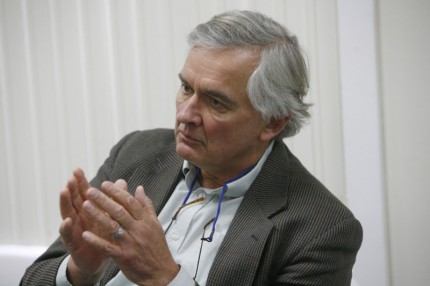 Only time will tell whether NOAA Fisheries’ agreement to reconsider some of its most draconian Gulf of Maine cod restrictions will prove a turning point in NOAA’s dealing with the fishing industry. And one can argue that the move — coming in response to a Jan. 22 letter from Congressman Seth Moulton in support of a very viable fishing — is one that NOAA’s Northeast administrator, John Bullard, should have given more credence when he flatly rejected it last month. Read the rest here 11:18
Only time will tell whether NOAA Fisheries’ agreement to reconsider some of its most draconian Gulf of Maine cod restrictions will prove a turning point in NOAA’s dealing with the fishing industry. And one can argue that the move — coming in response to a Jan. 22 letter from Congressman Seth Moulton in support of a very viable fishing — is one that NOAA’s Northeast administrator, John Bullard, should have given more credence when he flatly rejected it last month. Read the rest here 11:18
Voracious protected seals starting to overrun waters off New England
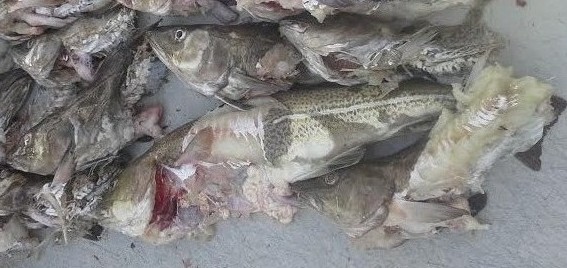 But what is the cost? Nils Stolpe, a Florida-based fishing industry journalist and advocate, calculated that since each seal consumed 5 percent of its body weight each day in squid, mollusks, crustaceans, and a variety of fish including rockfish, herring, flounder, salmon, hake, and lance, and don’t forget cod, it amounts to q a quarter million pounds daily. Annually he added it up to 450,000 million pounds, about 200,000 metric tons. Read the rest here 07:07 Read Dogfish and seals and dolphin, oh my! by Nils Stolpe here
But what is the cost? Nils Stolpe, a Florida-based fishing industry journalist and advocate, calculated that since each seal consumed 5 percent of its body weight each day in squid, mollusks, crustaceans, and a variety of fish including rockfish, herring, flounder, salmon, hake, and lance, and don’t forget cod, it amounts to q a quarter million pounds daily. Annually he added it up to 450,000 million pounds, about 200,000 metric tons. Read the rest here 07:07 Read Dogfish and seals and dolphin, oh my! by Nils Stolpe here






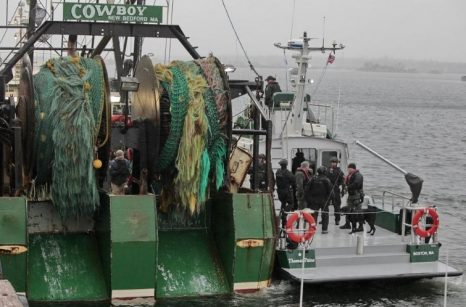





























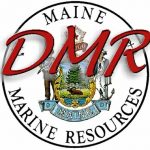

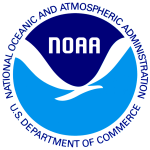
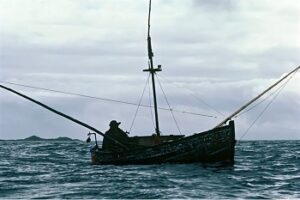
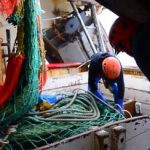




Comment on Amendment 23 re: Slighted Ports – Jim Kendall
Share this post